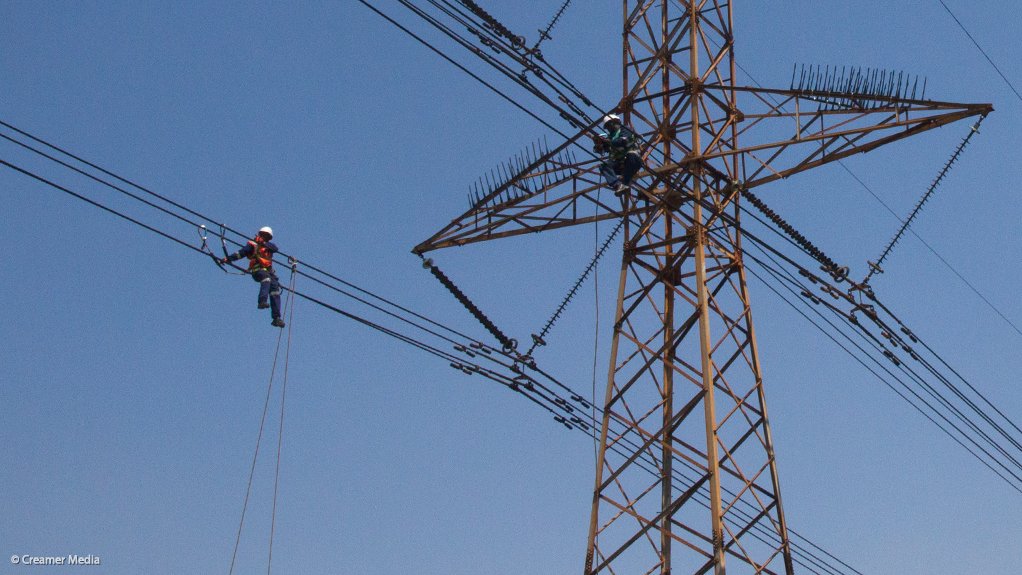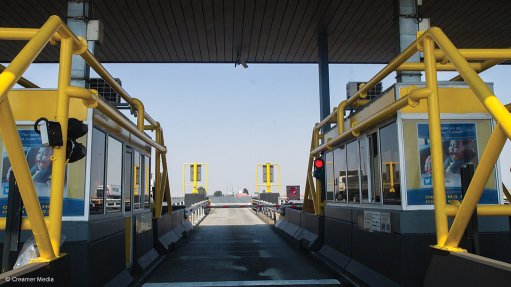IPP Office to oversee pilot procurement of private independent transmission projects
Government has confirmed that the Independent Power Producer Office (IPPO), which has overseen the public procurement of more than 7 300 MW of operational renewable-energy capacity since 2011, will oversee a pilot programme to procure South Africa’s first independent transmission projects (ITPs).
Speaking at Res4Africa’s yearly conference in South Africa, the National Treasury’s Jeffrey Quvane said that the decision had been made in light of the capabilities and frameworks that had been created at the IPPO to successfully carry out public procurement.
However, he indicated that this institutional arrangement could be changed after the pilot phase, indicating that the procurement could in future be carried out by a new entity or even the National Transmission Company South Africa (NTCSA) itself, which has been operating as an independent subsidiary of Eskom Holdings since July.
The decision to procure new grid capacity using the ITP approach, Quvane explained, was based on a government assessment that South Africa’s transmission infrastructure deficit, which was impeding the connection of new generation capacity, was a “country problem” that could not be addressed using the NTCSA’s balance sheet alone.
The transmission investment backlog was estimated at R390-billion.
Incorporating private-sector participation was also seen as a way of maintaining the financial discipline associated with the R250-billion Eskom debt-relief package.
The package included restrictions on the raising of new debt by the entity to fund capital projects; restrictions that were less stringent, however, when it came to transmission investments.
The National Treasury was also aiming to implement an ITP procurement model that did not add further contingent liabilities to the national accounts and was working with the World Bank on a credit guarantee instrument that was structured to de-risk such investments for investors and lenders in the absence of government guarantees.
Quvane said the current priority was to finalise the regulations required to facilitate private-sector participation in line with the Electricity Regulation Amendment Act, to which President Cyril Ramaphosa had assented to following its passage through Parliament, but which was not yet in operation.
Work was also under way to finalise a Ministerial determination opening the way for such procurement.
Ministry of Electricity and Energy official Joseph Maraba told conference delegates that the regulations would be released for public comment early next year before being finalised.
Quvane indicated, meanwhile, that government aimed to finalise both the regulations and the Ministerial determination by the end of March.
No timeframe was provided for the identification of the pilot projects themselves, which would be selected together with the NTCSA from the priority powerline projects included in the NTCSA’s recently updated Transmission Development Plan.
Likewise, no timeframe was provided for the issuance of the request for proposals.
However, the recently released Medium-Term Budget Policy Statement confirmed that a pilot ITP procurement process was being prepared for the second half of 2025 using a build-operate-and-transfer model and supported by the new credit-guarantee vehicle.
The World Bank’s Multilateral Investment Guarantee Agency has been playing a central role in designing the instrument, which will seek to mimic the role that government guarantees conventionally play to de-risk projects for developers without exposing the national balance sheet to more contingent liabilities.
Several development finance institutions will be approached to participate and Quvane indicated that it was likely to be canvassed during an upcoming National Treasury roadshow at the end of November.
Article Enquiry
Email Article
Save Article
Feedback
To advertise email advertising@creamermedia.co.za or click here
Announcements
What's On
Subscribe to improve your user experience...
Option 1 (equivalent of R125 a month):
Receive a weekly copy of Creamer Media's Engineering News & Mining Weekly magazine
(print copy for those in South Africa and e-magazine for those outside of South Africa)
Receive daily email newsletters
Access to full search results
Access archive of magazine back copies
Access to Projects in Progress
Access to ONE Research Report of your choice in PDF format
Option 2 (equivalent of R375 a month):
All benefits from Option 1
PLUS
Access to Creamer Media's Research Channel Africa for ALL Research Reports, in PDF format, on various industrial and mining sectors
including Electricity; Water; Energy Transition; Hydrogen; Roads, Rail and Ports; Coal; Gold; Platinum; Battery Metals; etc.
Already a subscriber?
Forgotten your password?
Receive weekly copy of Creamer Media's Engineering News & Mining Weekly magazine (print copy for those in South Africa and e-magazine for those outside of South Africa)
➕
Recieve daily email newsletters
➕
Access to full search results
➕
Access archive of magazine back copies
➕
Access to Projects in Progress
➕
Access to ONE Research Report of your choice in PDF format
RESEARCH CHANNEL AFRICA
R4500 (equivalent of R375 a month)
SUBSCRIBEAll benefits from Option 1
➕
Access to Creamer Media's Research Channel Africa for ALL Research Reports on various industrial and mining sectors, in PDF format, including on:
Electricity
➕
Water
➕
Energy Transition
➕
Hydrogen
➕
Roads, Rail and Ports
➕
Coal
➕
Gold
➕
Platinum
➕
Battery Metals
➕
etc.
Receive all benefits from Option 1 or Option 2 delivered to numerous people at your company
➕
Multiple User names and Passwords for simultaneous log-ins
➕
Intranet integration access to all in your organisation





















